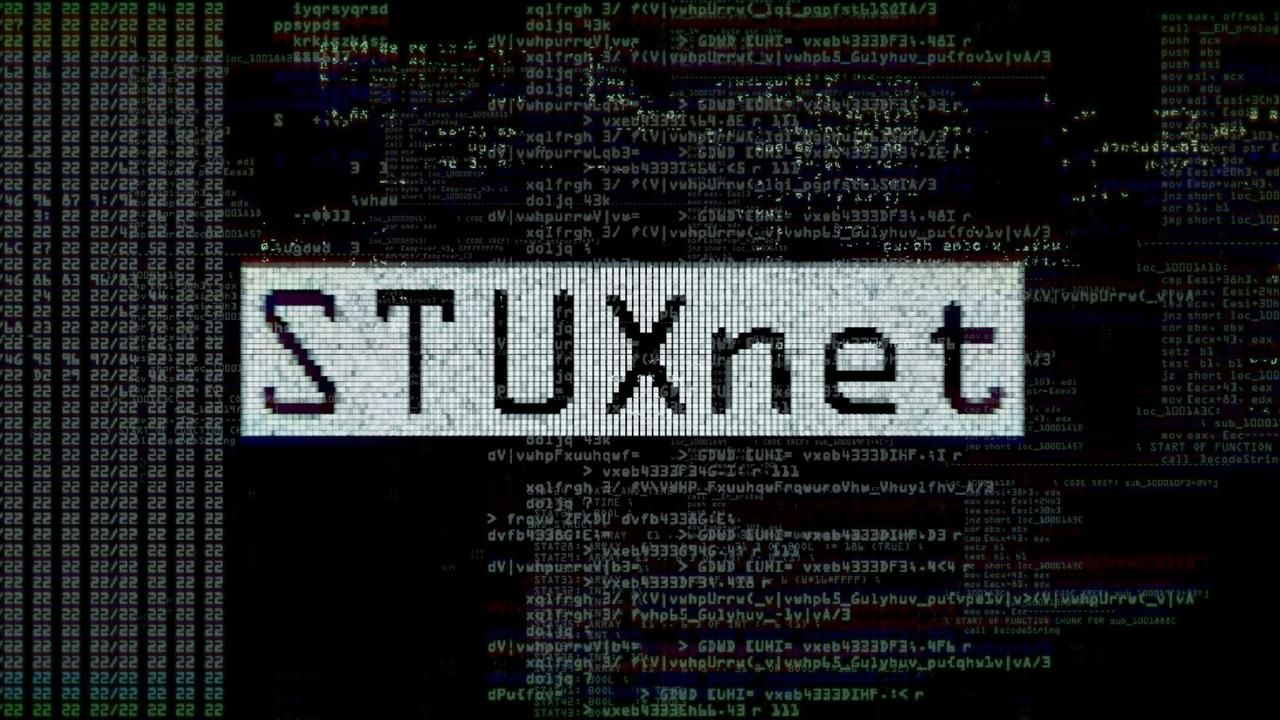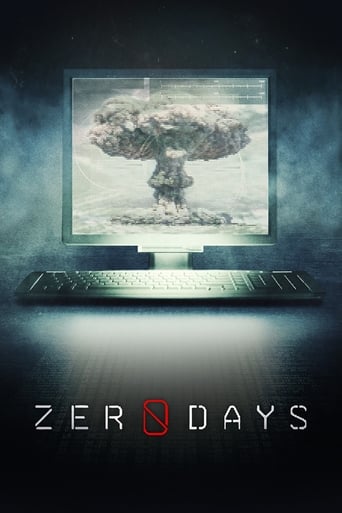

This documentary is a masterpiece for one single reason: it reveals something that has been and still is brewing in the wings of many governments and that can lead to a nuclear war directly from cyberspace, without being able to trace the starting point, hence the attacker without information from inside the circle that started it. And when the cyber virus or hostile program or simply malware is active where it is supposed to cause harm it is impossible to stop it. Imagine such a beast in the nuclear "defense" of the nuclear powers in this world. The particular malware used in this case is Flame first as a precursor and then Stuxnet, code name Olympic Games. The target was Iran in 2010-2011, their centrifuges enriching uranium, and the objective was to make these centrifuges misbehave causing their self-destruction. This Stuxnet was also an artificial intelligence malware since it could circulate in a cyber system till it could find its target, it could install itself in that target, observe for a while after upgrading itself from the Internet, then determine the moment it becomes active and starts sabotaging its target. The most vicious part of it is that it sends to the various controlling systems and units messages of everything being normal as usual. When the controllers find out something is wrong because of their observation of a misbehavior or misconduct of the machines targeted by the malware, it is too late. It is also clear this malware can attack some equipment, like a nuclear plant and cause a tremendous catastrophe and a great number of casualties. Today we can say who did it because someone from inside decided, when they realized they were on the brink of a nuclear catastrophe that could have been hundreds of times worse than Chernobyl, to leak the program onto the Internet and then to leak some details to the director of this documentary a couple of years later.The covert operation against Iran was conducted under Obama and with his consent, a least his more or less passive consent. He will sign an executive order after the fiasco of the operation imposing the responsible services to require and obtain the President's approval, just the same way as for nuclear weapons. The accomplice who was probably a lot more than just a second fiddle, rather the first lead violin or guitar if not the whole orchestra with Obama as the solo tenor, the accomplice was Israel and its Mossad. To know the grim picture of this Mossad, just watch some episodes of NCIS in which it is more than present, actually lethally present. They are specialists of covert twisted and perverse operations that they consider as normal since it is only gathering vital intelligence for Israel and cleaning up the plate afterwards by killing all informers to leave no witnesses behind. NCIS is not a documentary and this vision is maybe slightly excessive but the plan behind Stuxnet was covert twisted and perverse.The objective was to destroy the nuclear facilities of Iran by making the centrifuges explode. That would have blown up and out tremendous quantities of radioactive uranium, killed many people in the facility and around it, irradiated probably millions of people in Iran and then it would have spread like a cloud all over the world. Covert, twisted, perverse AND LETHAL. This malware was a potential Weapon of Mass Destruction. The only defense of Obama in this situation is that he had inherited the baby from George W. Bush and he was not informed in due time and before it was actually going. We can even think that if it had not been leaked out onto the Internet in a way we cannot know it would not have been stopped. The New York Times says the malware was by some accident downloaded onto the personal work station of some worker in the Iranian nuclear facility and from there it jumped onto the Internet. But then the Iranians knew and they protected the facility. Only a small proportion of the centrifuges were disturbed and had to be taken care of. It slowed down Iran's progress in their nuclear program, but after the event Iran caught up with a vengeance.The documentary then explains how the Iranians decided to launch two cyberattacks onto the USA, particularly their banks to show them that if the USA can do it, Iran and many other people can do it too. Such cyberattacks can be absolutely anonymous, untraceable and yet the Iranians made them traceable so that the USA could get the message. Obama got it. He signed the executive order I have already mentioned and he started moving towards a diplomatic treatment of the situation after the second election. Israel and their Prime Minister were furious and rejected in the United Nations the Iranian deal. But I guess Obama was furious enough to have been manipulated to keep some cool distrust and distance towards the Israeli Prime Minister known as BIBI. But you must understand that we know about it, and we are still here to know about it because it failed because of a leak. But any US President can use such technological malware to destroy someone, some country he or she considers an "adversary" as the US Coast Guard says so well in its latest Cyber Strategy report (June 2015). When you read this report you find out the US Coast Guard is central in the fight against cybercrime in their domain (protection of the USA by protecting the oceans, ports and harbors, rivers and lakes) and that the objective is not only defensive. It is worded in such a way that the expert hackers they recruit or hire are supposed to "defend Cyberspace, enable operations and protect infrastructure." Cyberspace is in no way a national reality; It is a global reality that evades control and protection within the borders of any particular country. . .
... View More"Zero Days" conveys two messages. The broader one, though hardly new, bears repeating and applies as much to advances in medical science as to war. In a hypercompetitive world, it asks, when do we decide not to pursue innovation and hold back for the greater good? Has technology outrun our capacity to control it?
... View MoreZERO DAYS is another documentary from prolific film-maker Alex Gibney. This time the topic of debate is the computer virus Stuxnet, manufactured by American and Israeli intelligence and launched in Iran to destroy Iranian nuclear facilities. Of course, such a mammoth undertaking had unexpected results, and ZERO DAYS explores those results.It's a highly politicised documentary with the expected criticism of the USA and Israel; it seems that most if not all documentary makers in recent years are left wingers who always have their sights set on the USA. However, the subject matter is interesting enough to make this worthwhile, and the technical details are by far the best part. The nature of the incident is such that most of the information was and is still being hushed up, so don't expect much 'on the record' stuff here, just computer geeks explaining what they know.
... View MoreThis documentary about the Stuxnet worm that attacked Iran's uranium centrifuges tries to get at the truth about who was behind the attack. The movie shows interviews with a lot of high-ranking people who either won't talk or who will only comment about very public information. The facts are that Stuxnet was a large and very sophisticated computer virus, ultimately capable of infecting any Windows PC but it only activated inside of very specialized equipment: one brand of programmable logic controllers attached to a very specific configuration of machines. The target pattern matched Iran's uranium enrichment facility.The movie's point is that, like the Trinity atomic test in New Mexico in 1945, Stuxnet has let another genie out of the weapons bottle. This genie is cyber weapons that can strike anywhere on the planet essentially in an instant.If that makes you nervous, then the movie has met the filmmaker's objective.
... View More